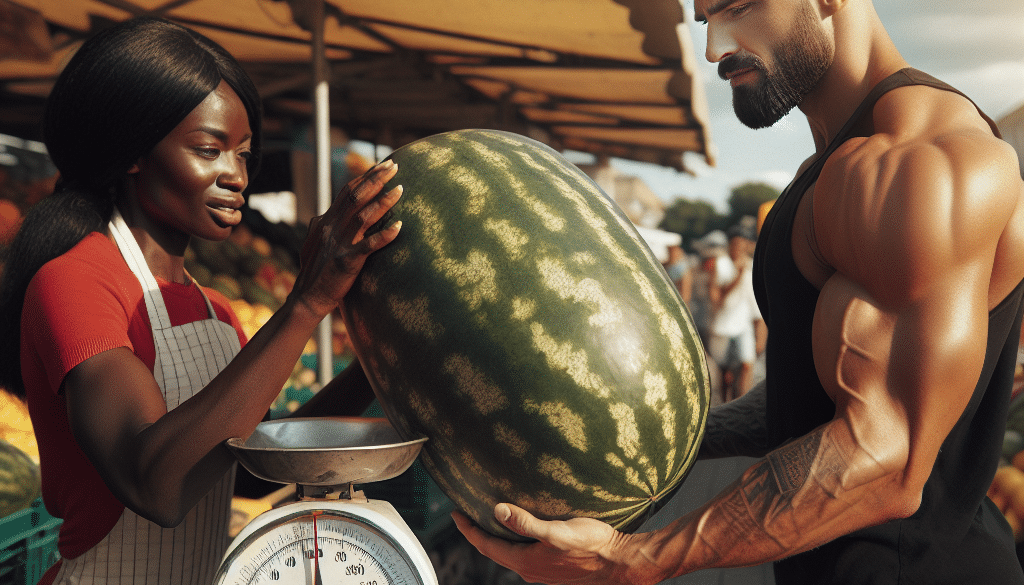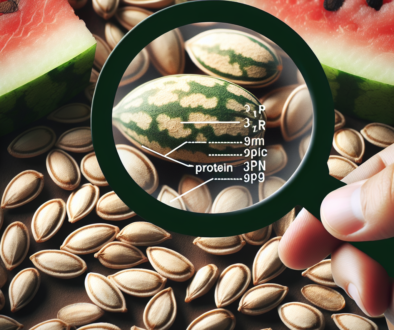Weight of a Watermelon: Know Before You Buy
-
Table of Contents
- Weight of a Watermelon: Essential Tips Before Your Purchase
- Understanding Watermelon Varieties and Their Average Weights
- Why Watermelon Weight Matters
- How to Estimate the Weight of a Watermelon
- Case Studies: The Heaviest Watermelons on Record
- Statistical Insights into Watermelon Production and Weight
- Choosing the Right Watermelon: A Buyer’s Guide
- Conclusion: Key Takeaways on Watermelon Weight
- Enhance Your Health with ETprotein’s Watermelon Seed Protein
Weight of a Watermelon: Essential Tips Before Your Purchase

When it comes to buying watermelons, weight is a significant factor that often goes overlooked. Understanding the weight of a watermelon can be crucial for various reasons, from estimating the number of servings to assessing the value for money. In this comprehensive guide, we’ll delve into the importance of a watermelon’s weight, how to estimate it, and why it matters to consumers and growers alike.
Understanding Watermelon Varieties and Their Average Weights
Watermelons come in a plethora of varieties, each with its unique size, shape, and weight. The most common types of watermelons include the seeded varieties, seedless, mini, and yellow/orange fleshed watermelons. Seeded watermelons typically weigh between 15 to 45 pounds (6.8 to 20.4 kilograms), while seedless varieties range from 10 to 20 pounds (4.5 to 9.1 kilograms). Mini watermelons are smaller, as their name suggests, and usually weigh between 1 to 7 pounds (0.45 to 3.2 kilograms).
Why Watermelon Weight Matters
The weight of a watermelon is not just a number; it’s an indicator of several key factors:
- Value for Money: Heavier watermelons often offer more fruit for your dollar, making them a better economic choice.
- Ripeness and Flavor: A watermelon that feels heavy for its size is usually riper and juicier, which translates to better taste.
- Portion Planning: Knowing the weight helps in planning portions for recipes or events.
How to Estimate the Weight of a Watermelon
Estimating the weight of a watermelon can be done through visual inspection and physical handling. Look for a watermelon that is symmetrical and free from bruises. A ripe watermelon will have a creamy yellow spot where it rested on the ground. When lifted, it should feel heavy for its size, indicating a high water content and ripeness.
Case Studies: The Heaviest Watermelons on Record
Record-breaking watermelons have been grown by farmers who specialize in cultivating giant fruits. For instance, the current Guinness World Record for the heaviest watermelon is held by Chris Kent from Tennessee, USA, with a staggering weight of 350.5 pounds (159 kg) in 2013. These examples showcase the potential of watermelon growth and the importance of weight in achieving such feats.
Statistical Insights into Watermelon Production and Weight
According to the Food and Agriculture Organization of the United Nations, China is the largest producer of watermelons, contributing significantly to the global supply. The average weight of watermelons can influence the total yield and market availability, affecting both local and international markets.
Choosing the Right Watermelon: A Buyer’s Guide
When selecting a watermelon, consider the following tips:
- Opt for symmetrical watermelons with a uniform shape.
- Examine the rind for a creamy yellow spot, indicating ripeness.
- Lift the watermelon; it should feel heavy for its size.
- Tap the watermelon; a ripe one will have a deep, hollow sound.
Conclusion: Key Takeaways on Watermelon Weight
In conclusion, the weight of a watermelon is a crucial factor that affects its value, ripeness, and flavor. By understanding how to estimate the weight and what it signifies, consumers can make informed decisions when purchasing watermelons. Remember to look for a heavy, symmetrical watermelon with a creamy yellow spot for the best quality and taste.
Enhance Your Health with ETprotein’s Watermelon Seed Protein
After enjoying a delicious watermelon, consider the health benefits of watermelon seed protein. ETprotein offers high-quality watermelon seed protein that is organic, non-GMO, and allergen-free. This plant-based protein is perfect for those looking to incorporate a nutritious supplement into their diet. Whether you’re involved in sports nutrition, weight management, or general health and wellness, ETprotein’s products cater to a wide range of needs.
About ETprotein:
ETprotein, a reputable watermelon seed protein Chinese factory manufacturer and supplier, is renowned for producing, stocking, exporting, and delivering the highest quality organic bulk vegan protein and plant proteins. They include Organic rice protein, clear rice protein, pea protein, clear pea protein, watermelon seed protein, pumpkin seed protein, sunflower seed protein, mung bean protein, peanut protein etc. Their offerings, characterized by a neutral taste, non-GMO, allergen-free attributes, cater to a diverse range of industries. They serve nutraceutical, pharmaceutical, cosmeceutical, veterinary, as well as food and beverage finished product distributors, traders, and manufacturers across Europe, USA, Canada, Australia, Thailand, Japan, Korea, Brazil, and Chile, among others.
ETprotein specialization includes exporting and delivering tailor-made protein powder and finished nutritional supplements. Their extensive product range covers sectors like Food and Beverage, Sports Nutrition, Weight Management, Dietary Supplements, Health and Wellness Products, and Infant Formula, ensuring comprehensive solutions to meet all your protein needs.
As a trusted company by leading global food and beverage brands and Fortune 500 companies, ETprotein reinforces China’s reputation in the global arena. For more information or to sample their products, please contact them and email sales(at)ETprotein.com today.














